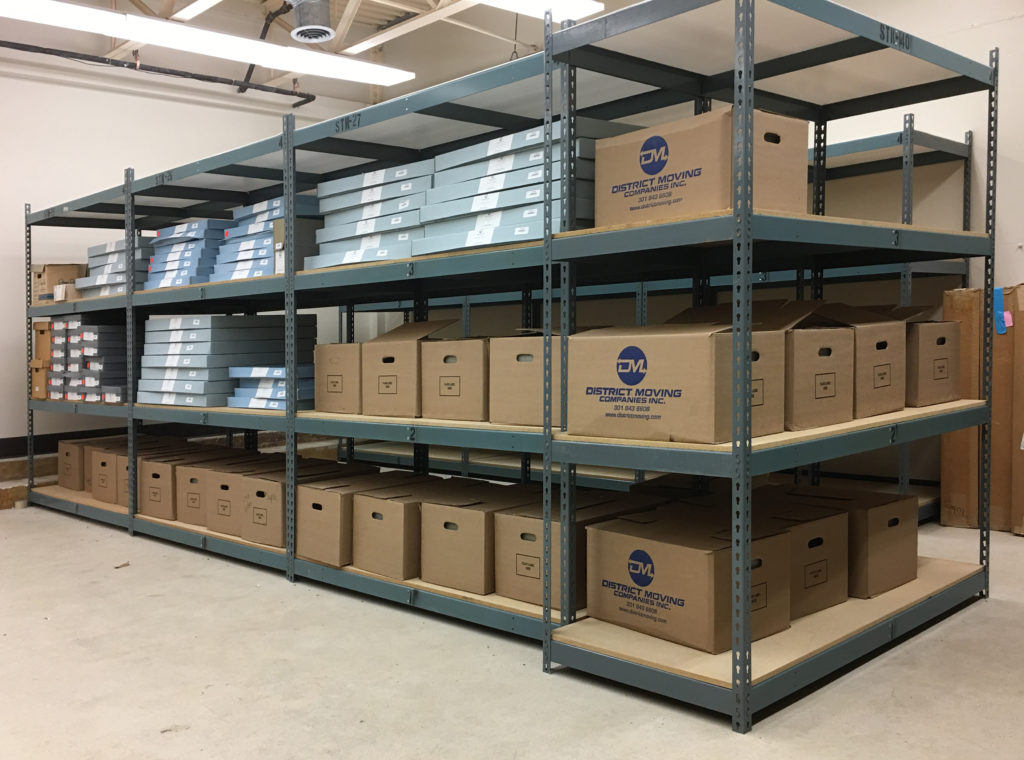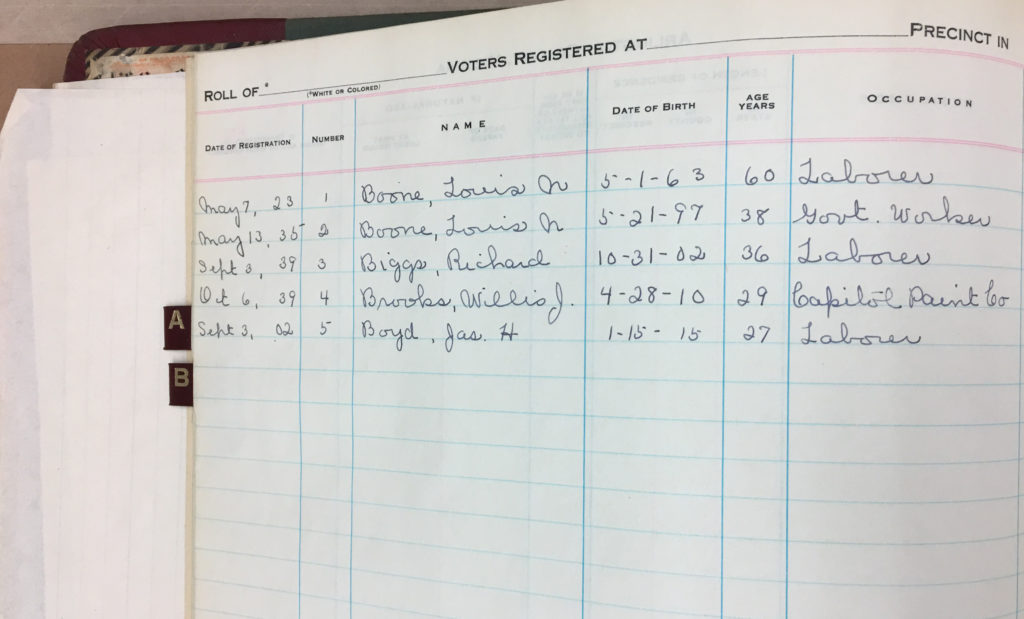The public now has access to long-inaccessible local documents, courtesy of Arlington Public Library.
The library’s Center for Local History recently repatriated to Arlington a trove of historic documents dating as far back as the 1840s, held in safekeeping by the Library of Virginia for many years.
More from a county press release:
Arlington Public Library announces the return of thousands of historic materials from the Library of Virginia. Some of these repatriated records date back to the late 1840’s, which make these the oldest records in the Center for Local History’s collection. A goldmine for genealogical researchers, these documents provide a window into our social, economic and agricultural history.
“These early records represent a snapshot of a time in Arlington we know little about,” said Library Director Diane Kresh. “We are excited to learn more as we begin to examine these records.”
The acquisition includes:
- Personal property tax records dating back to the late 1840’s
- Precinct and teacher registers from the early 1900’s
- Election papers and other miscellaneous records
Years ago, a large quantity of historic documents was transferred to the Library of Virginia for storage and safe-keeping. The transfer included a small number of non-Circuit Court records. With the recent renovation of the Community Archives, Arlington Public Library is now able to provide space to house and catalog these historic documents.
A sampling of the collection will be on display during two public viewings on October 16, 7-8:30 p.m. and October 23, 2-3:30 p.m. at the newly remodeled Community Archives. The Center for Local History’s Community Archives is an off-site storage facility which collects and preserves materials that illustrate the history and culture of Arlington County. The facility is located at the Woodmont Community Center on 2422 N. Fillmore St. in Arlington, VA 22207.
Once the records are processed, they will be made available to the public. Over time, records will be digitized as part of an ongoing effort to increase public access to government records and archival materials.
We asked Arlington Public Library spokesman Henrik Sundqvist about the documents and the library’s plans for them.
ARLnow: Can you tell me some of the things historians and residents can learn from precinct and teacher registers?
Sundqvist: These materials will of course be of interest to genealogists who can find family members represented in the documents. But historians and researchers can also use them to understand Arlington and its history. For example, the teachers’ registers can reveal subjects taught, textbooks used, daily schedules, student names, grades and ages and class size. Voter materials can reveal the number of voters registered in a precinct, voter gender, voter race and voter occupation.
ARLnow: Does sorting through these require a full-time staffer? Or is the existing staff able to do this on top of their current work? (And how many existing staffers are there?
Sundqvist: The Center for Local History’s Community Archives continuously collects material related to Arlington’s history and culture. The Archives has received more than 60 donations from businesses, groups and individuals in the last 12 months, including three very large acquisitions. Donated materials are stored at the archives until they are able to be processed. Donations are processed in an order based on factors including demand, condition, priority, significance, size, scope and available resources. Once these records are processed and cataloged, they will be made available to the public. Some will require special conservation due to their fragile condition. Over time, these records will be digitized as part of an ongoing effort to increase public access to government records and archival materials. We don’t have a date set yet but will put out an announcement as we make progress.
The Center for Local History has 4 full-time staff positions and 1 intern position, and also uses trained volunteers. Two of the staff positions are for professional archivists. The Center for Local History operates the Research Room at Central Library and the Community Archives program.
ARLnow: Do you know when exactly the archives were originally transferred over to the Library of Virginia?
Sundqvist: We understand it was decades ago but do not know the exact date.
ARLnow: Is the community archives the same location as the center for local history? (Want to direct people to the right place for those two meetings mentioned in the press release)
Sundqvist: The Center for Local History’s Research Room is located on the first floor of Central Library. The Arlington Community Archives is located off-site at the Woodmont Center on 2422 N. Fillmore St. in Arlington, VA 22207; this facility includes storage areas and a workroom, and is not open to the public. Archival materials are instead delivered to the Research Room, located at Central Library, by request for public use.
The Archives facility was recently renovated and expanded to meet the growing needs of its increasingly diversified collection. We have two public events scheduled in October (Oct 16 and 23) where the public is invited to tour the space, meet our archivists and see samples of the new acquisition.






